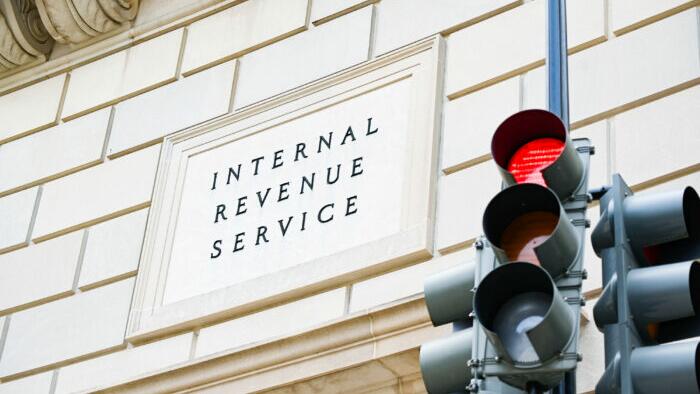Authored by Naveen Athrappully via The Epoch Times (emphasis ours),
The Internal Revenue Service (IRS) has announced pausing a small-business tax credit program from the pandemic era for the remainder of the year following worries that ineligible claims are being filed.
The Employee Retention Credit (ERC) was instituted during the COVID-19 pandemic to encourage small businesses to retain their employees on payroll. It offered a refundable tax credit for businesses that paid employees while being shut down due to lockdowns and other restrictions. More than three years later, applications for ERC claims continue to pour in at the agency.
Amid “rising concerns about a flood of improper Employee Retention Credit claims,” the IRS announced an immediate moratorium on the program on Sept. 14 that is valid through “at least the end of the year.”
With the moratorium in effect, it would mean that new claims for ERC would not be processed. However, the agency would continue working on previously submitted ERC claims, it said. Processing times may be longer due to fraud concerns.
The moratorium was ordered by IRS Commissioner Danny Werfel due to worries that third parties or “promoters” were aggressively pressuring ineligible businesses to file for ERC claims. Such third parties can charge hefty fees for services, which can go up to 25 percent of the ERC refund.
Even though promoters advertise that ERC claim-submissions as “risk free,” businesses filing such claims face “significant risks” as the agency increases its audit and criminal investigation into the matter.
According to the IRS, any business that improperly files for ERC claims must pay back the received credit together with potential interest and penalties.
“A business or tax-exempt group could find itself in a much worse financial position if it has to pay back the credit than if the credit was never claimed in the first place,” the IRS stated.
The agency has received around 3.6 million ERC claims over the course of the program, which is roughly a fourth of the total number of U.S. businesses that file tax returns annually.
The IRS has already referred thousands of ERC claims for audit. Hundreds of claims have been referred to the IRS’s Criminal Investigation division which is “actively working to identify fraud and promoters of fraudulent claims for potential referral for prosecution to the Justice Department.”
As of July 31, the division has initiated 252 investigations related to potential ERC claim fraud worth over $2.8 billion.
Out of these 252 cases, 15 have resulted in federal charges. And among the federally charged cases, six have ended in convictions and four have reached the sentencing phase. The average sentencing is 21 months.
“The IRS is increasingly alarmed about honest small-business owners being scammed by unscrupulous actors, and we could no longer tolerate growing evidence of questionable claims pouring in,” Mr. Werfel said.
“The further we get from the pandemic, the further we see the good intentions of this important program abused. The continued aggressive marketing of these schemes is harming well-meaning businesses and delaying the payment of legitimate claims, which makes it harder to run the rest of the tax system. This harms all taxpayers, not just ERC applicants.”
Tax Credits and Fraud
When the program was initially introduced during the pandemic, the tax credit offered to businesses was 50 percent of a qualified employee’s wages, limited to $10,000 per year.
As such, a qualifying business could receive a credit of up to $5,000 per employee per annum. The credit was later updated to 70 percent of wages, limited to $10,000 in wages per quarter.
To qualify for ERC, a business should have shut down due to a government-imposed restriction during 2020 or during the first three quarters of 2021. Businesses that experienced a decline in gross receipts during this period may also qualify. These employers must have paid wages to their employees during the period to claim ERC.
Like the Sept. 14 warning, the IRS had issued a similar alert about ERC fraud back in March. At the time, acting IRS Commissioner Doug O’Donnell advised businesses that “if the tax professional they’re using raises questions about the accuracy of the Employee Retention Credit claim, people should listen to their advice.”
“People need to think twice before claiming this,” he said.
Despite ERC being only applicable to businesses that were shut down or saw a steep decline in revenue during the pandemic, fraudsters entice business owners by claiming that most businesses qualify for the credit.
During an interview an with The Washington Post, Laurel Blatchford, a Treasury Department official, said that the extensive ERC fraud should prompt Congress to consider new legislation to tackle the issue.
An IRS spokesperson said that the agency has paid over $230 billion in ERC claims, which far exceeds the original congressional estimate for the program.
The IRS advised businesses who have not yet filed for their ERC claim to consider reviewing the guidelines and wait to file for the credit.
“The IRS believes many of the applications currently filed are likely ineligible, and tax professionals note anecdotally that they are seeing instances where 95 percent or more of claims coming in recent months are ineligible as promoters continue to aggressively push people to apply regardless of the rules.” the agency said.
Loading…











